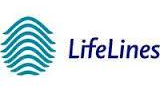LIFELINES: LifeLines Cohort Study

Lifelines is a three-generation observational cohort and biobank designed to investigate universal risk factors and complex interactions between environmental, phenotypic and genomic factors in the development of chronic multifactorial diseases in a population-based sample of 167,729 subjects from the northern provinces of the Netherlands. Between 2006 and 2014 participants aged 6 months to 93 years had a baseline physical examination, and extensive questionnaires. Follow-up visits are scheduled every 5 years and in between participants receive follow-up questionnaires. Linkage is being established with medical registries and environmental data, the core of the project is dedicated data collection and biological sample storage, including genetic samples (“biobank”). GWAS have been done on >15,000 individuals. The design has statistical advantages, enables unique possibilities to study social characteristics, and offers practical benefits. Aim of LifeLines is to be a resource for the national and international scientific community.
- Harold Snieder, University of Groningen, Hanzeplein, Principal Investigator
- GJ Navis, University of Groningen, Hanzeplein
- Peter Deen, Radboud University Medical Centre
Other publications where Lifelines is main data source: https://www.lifelines.nl/lifelines-research/publications

